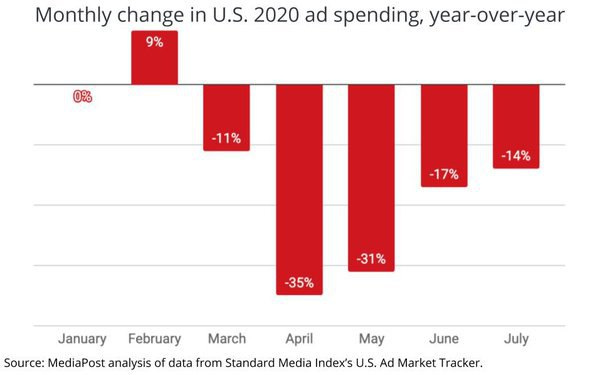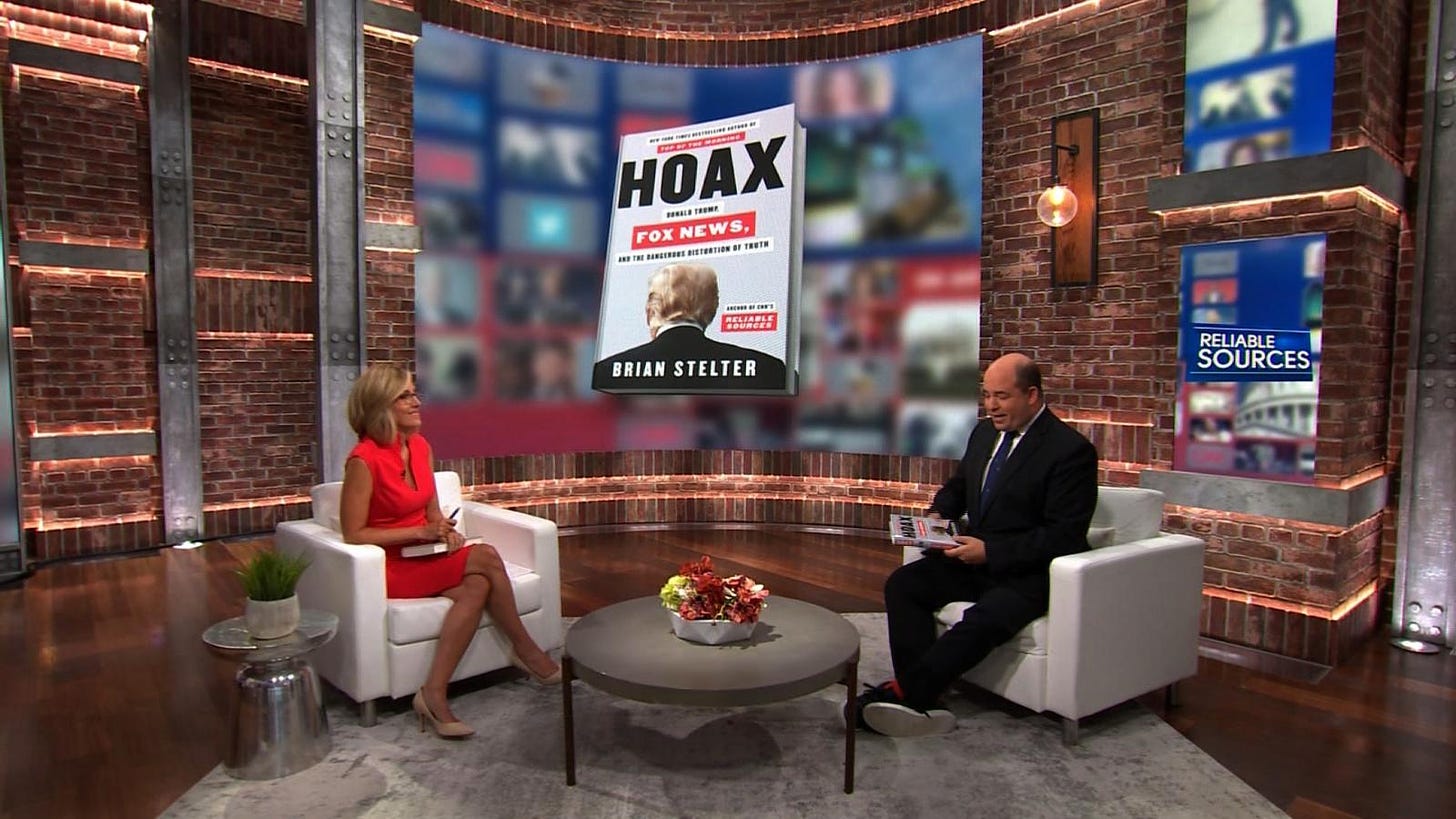Media for Kids, Jail for Journalists, Education for Newsletters' readers, New EIC for Bon Appetit
Media news. Explained. Issue #2
Hi, guys!
Well… Let’s talk about media this week.

Top 5 news of the week. Explained.
1. Children’s news titles have been successful during the pandemic
What’s up:
Two British titles (First News and The Week Junior) were able to continue printing and getting new subscribers even when other publishers had to cut costs and even cease printing.
The numbers. The Week Junior circulation climbed by 22% year-on-year (to 85,500 copies a week), paid subscriptions are up by more than 10,000. First News home subscription doubled.
Why it is important:
Let’s look at the situation adding some recent context about kids in media. NowThis launched new vertical NowThis Kids. Buzzfeed hired teenagers to cover elections. And readership of the kids news titles are up in UK. So, the point is that media finally faced the situation when they have to take kids into account. 3-4 years ago there was nothing to read for kids. News media brushed them aside and they saw that media doesn’t care about them. And then kids stuck into the platform (Youtube, Vine and now — TikTok etc.). But time has changed. Kids are smart enough to choose the content, to read it and to have thoughts about it. So it’s time for media to turn to kids and give them attention. And later they will thank you with loyalty and money (of course).
Go deeper: Children and parents: Media use and attitudes report
2. Buzzfeed Germany had new owner
What’s up:
Buzzfeed sold the Germany business to Ippen Digital Media. All employees and the whole business now are under the new ownership.
Why it is important:
US media are not going to force the expansion to the East (in Europe). There are two main problems: money (surprise!) and the European legislation (in terms of data storage and users tracking). Recently Quartz closed London office, Buzzfeed has a serious problems in UK, HuffPost sold business in Germany.
Go deeper: What is going on with the plans of expansion.
3. Research: UK users think that media helped the situation with COVID 19 get worse
What’s up:
According to the new research of Reuters Institute, 35% of British people are sure that media has been worsen the situation with COVID 19. And only 7% think that media helped to improve the situation.
Why it is important:
Media faced with the unprecedent pressure this year. Fake news, misinformation about pandemic and death toll, governments — all the things that are pressing the press. And media have to maneuver between audience, advertisers and government. And they lost the game — social media, programmatic and authorities beat them. But the problem is not just in social media or fakes. Media had a brilliant opportunity to show how they can handle the avalanche of the same type news, but a most of them failed to create something interesting and trustworthy. And here is the result.
Go deeper: Covid-19 news and information: consumption and attitudes
4. Journalists established the news cooperative
What’s up:
Journalists led by ex-Civil (blockchain platform for journalists) Maria Bustillos launched an experimental media initiative: a news cooperative, called Brick House, that will offer subscriptions to nine small publications.
Why it is important:
Well it is not something extraordinary. Many ex-staffers from news media are trying to establish new projects. But Brick House does some interesting things with the structure and strict rules of the ownership. Journalists are trying to create closed structure without any influence from outside the project. Everyone in Brick House can have a share. But they can sell it only to someone inside the cooperative — no one can buy the share from outer world. Can it be sustainable? The access to the journalism they produce will cost $75 a year. So, let’s see.
5. Militia have detained hundreds of people in Minsk (Belarus)
What’s up:
Militia have detained protesters and journalists working for local and foreign media in Minsk. Journalists now think that there are two principal targets for militia — protesters wearing white-red clothes and reporters. Local news media Nasha Nive released the footage of armed man shooting journalist.
Why it is important:
The government of Belarus and so called president elected Lukashenko are going to demonize protesters and media outlets. They asked Russian Kremlin baked outlet — RT to help with this assignment. Thus for now almost all of the TV-propaganda on the local TV is producing by the RT. And the journalists from RT are free to go anywhere and cannot be detained.
Go deeper: Russians and Belarusians are tired of backwards-looking autocrats

Something visual about media.
Standard Media Index calculated how ad spending in USA have been changing during 2020. July was still poor (-13,9%).


The one who was in the spotlight this week.
The newest book about media and Trump was out at August 25. “HOAX: Donald Trump, Fox News, and the Dangerous Distortion of Truth” by Brian Stelter.
This book is about the close relationships between the president of US and the most popular news media in the country — Fox News. And this book is also about the distortion of truth that Fox News and Trump both actively contributed to.

Brian Stelter (35) is the media correspondent on CNN (ex-NYT). He is the anchor of “Reliable Sources” (Sunday morning talk show for CNN).
His first book was released in 2013. “Top of the Morning: Inside the Cutthroat World of Morning TV” tells about the behind the scene of the most popular and important morning shows in US. The book became the inspiration for tv series “Morning Show“ by Apple TV Plus.

We’ve spotted it this week
Digiday tells the stories of news media which is going deep in newsletters. But (there is always some ‘but’ ) not as the platform for spreading the news.
We are talking about limited-run educational newsletters.
For example:
Six-Week Money Challenge from The Wall Street Journal. It is free, it is course-style and it provides instructional steps that readers can follow to increase their knowledge about personal finance.
Sleep But Better from CNN. It is about what the name is — how to sleep well.
Buzzfeed (the pioneer of such newsletters) has 12 course-styled newsletters about everything (from better skin to butt challenge).
Dan Oshinsky, founder of email strategy consultancy Inbox Collective:
“News organizations have historically not really invested in these because they require some up front work and it’s a little bit different than the day-to-day format. It’s not the first thing you tackle. This is the second wave of newsletters”

In a couple of words.
Bon Appetit has new editor-in-chief. Dawn Davis an award-winning book editor known for promoting marginalized voices replaced longtime editor in chief Adam Rapoport.
Pulitzer Prize-winning journalist launched an online stress management programme for journalists called The Self-Investigation.
Hearst UK teamed up with TikTok and will help to led audience of Men’s Health and Women’s Health to the new hashtag challenge #LearnOnTikTok.
The 2020 political season will generate $5 billion in ad revenue for news media. But only about $1 billion will go to digital. The most part fo the money will be spent on TV.
Ghana is stepping into the fact-checking world in front of upcoming elections.
News app Flipboard extends Flipboard TV to all users in US. Early this year Flipboard TV was launched only for Samsung users. Samsung Galaxy device owners will continue to have exclusive access to upgrade to the premium, ad-free version of Flipboard TV. For everyone else, the service will be ad-supported.
Citation of the week:
"Please be advised that we are building up a very large 'dossier' on the many false David Fahrenthold and others stories [of Washigton Post] as they are a disgrace to journalism and the American people” / White House spokesperson Judd Deere

A glance on the big piece.
Here is the interview with Casey Newton, Silicon Valley editor at the Verge.
Alex Kantrowitz: Why do so many people hate tech press?
Casey Newton: I think there’s a separate but related question, which is about the health of our information ecosystem more broadly. And there, I do see some trouble spots. I think there are three algorithms that have reshaped the American press in ways that we are just now starting to confront. You have Google and Facebook, which can serve up this incredible fire hose of traffic to publishers so long as they cater to the ever-shifting whims of that algorithm.
And that has just resulted in a lot of really cheap-to-produce content like “what time is the Super Bowl” and “John Oliver destroyed this industry last night. Here’s the clip.” And all of that stuff is mostly harmless, but it has robbed publications of their individual identities. So, every website is just a version of every other website, and I think that has kind of undermined trust in the press generally because there’s just kind of a sameness to it.
Read, 16 minutes: One Zero
That’s all for today. See you next Friday.
Feel free to share it with your friends!
Take care,
Sergei




there's no MILITIA in Belarus (at least, for now) ;)